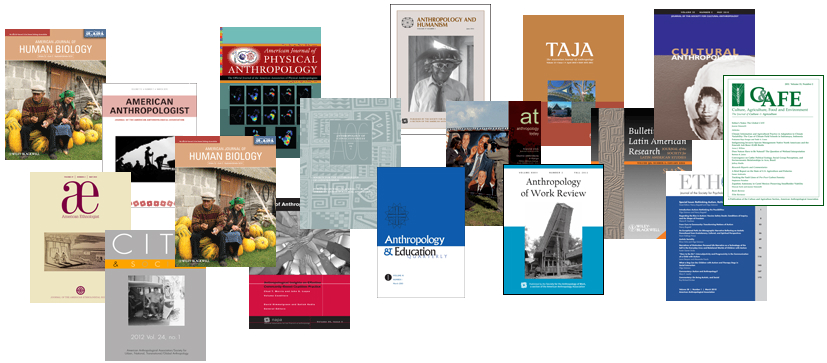I keep encountering anthropologists (mostly but not only in print) who help more in understanding how the world works today than other experts do, even in their own fields. For example, Debt: The First 5,000 Years by young U.S. anthropologist David Graeber, who did fieldwork in Madagascar, illuminates more about the current economic crisis than anything I know by economists. It even points to ways out. U.K. anthropologist Sir Jack Goody, who’s 93 and studied tribal cultures in West Africa, has expanded the idea of democracy far beyond a thing invented in Athens, and then perfected in the U.S. and U.K. In the volatile area of fundamentalist religion, U.S. anthropologist Tanya Luhrmann‘s When God Talks Back clarifies that arena more than most of what we see from theologians to new atheists. Has the hour of anthropology struck? If so, why now?
Most of us think of anthropology as the study of human culture done mainly through fieldwork among “primitive” tribal groups that still survive. That’s how the classics of the field were created. But it’s always had a broad range and expanded into many subcategories. My own intellectual touchstone as a youth was German-Jewish thinker Martin Buber: Bible translator, collector of mystical Hassidic tales, author of the existentialist classic, I and Thou. What a range he covered. But he billed himself as a “philosophical anthropologist.”
The strength of anthropology at the moment, I’d say, comes when it turns its eye to our own society as just another tribe or collection of humans trying to make symbolic sense of their experience — rather than looking back on other collectivities as if we alone have reached some satisfying, inevitable progress toward which those primitive versions are striving. It’s less about making sense of the past than casting an anthropological gaze on the present. This seems to unbewitch the level of “achievement” we’ve reached. We start looking like just another weird bunch of human creatures trying to make sense of their odd predicament, like Charlton Heston in Planet of the Apes when he finally gets it.
The self-reflective quality of anthropologists has helped attain this POV. The antics of anthropologists in the field have often been as odd and “tribal” — both in treatment of the “other” (like the Yanomami of Brazil, over which debate still rages), and of each other (like recent charges of sexual harassment among fieldwork teams) — as anyone they were studying. It’s exactly when they train their gaze on their own reality that their methods start to shed assumptions of superiority or opportunities for exploitation. So when they do fieldwork on their own tribe, they probably grow more astute. Their tradition already teaches distance and respect in principle for those they’re studying; that may aid in being a bit more objective in areas like the economy or fundamentalism.
Besides, they’re less likely to do harm when not straying outside our realm. Back in the 19th century, imperial powers tried to recruit anthropologists to help control indigenous societies. Throughout the 20th, they did the same, deploying “human terrain teams” in Afghanistan and Iraq, which anthropologist David Price eloquently deplores. In fact, anthropologists often develop self-critical fightback. In the Vietnam era, Marshall Sahlins described the military approach as search-and-destroy, while trying to use anthropology to research-and-destroy. They may be at their best and least damaging when applying their empirical, highly focused methodology — examining smallish groups respectfully — close to home.
This redirection toward introspection has been accumulating for 30 years, says U of T prof Tania Li. But it’s interesting to speculate on why. The end of the Cold War meant that the intellectually impressive Marxist vision of inevitable progress toward a socialist society lost some of the appeal it once had for academics. The pathetic capitalist imitation of it — “The End of History” — imploded during the Crash we’re still in. It’s become easier to see ourselves as primitives too: animals wearing clothes or tribalists scared of others and the dark. In the future, Indiana Jones (an archeologist but kin to anthropologists) may be confronting The Temple of Debt or The Curse of Failed Democracy.
This article was first published in the Toronto Star.
Photo: Wiley Asia Blog/flickr



